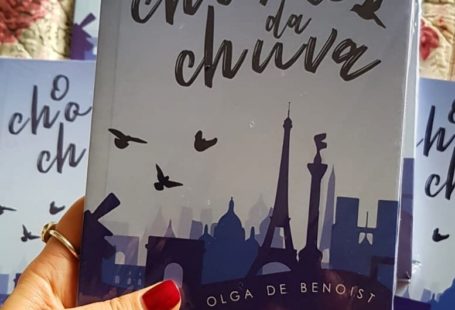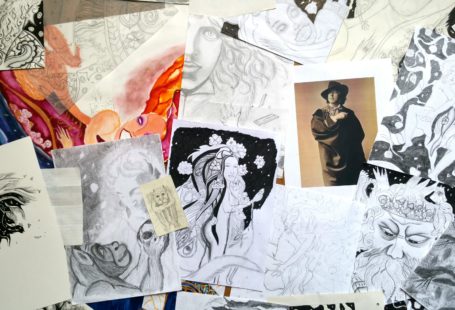The room was tiny, much smaller than mine, and rather shabby. There was almost nothing left of the Rain Man, only some old copybooks with illegible formulas and a pile of albums about Van Gogh. I took all this, thanked a Chinese, went outside and walked home passing by the church, old shops with goods for home and cheap restaurants, where pasta and vegetables, spring rolls with shrimps or rice with meat could be just some euros. We used to have dinner there, Estin and me, when we had money. Suddenly I felt hunger, entered one of them, ordered at random a menu of 10 euros, chewing long by inertia, drank beer, paid and went out. It was a dead night. The moon was shining above me and I had been looking up for a long time. There was pain inside, in my chest, as if a crazy butcher separated some part of the soul from me.
The Age of Rain (2017) by Olga de Benoist
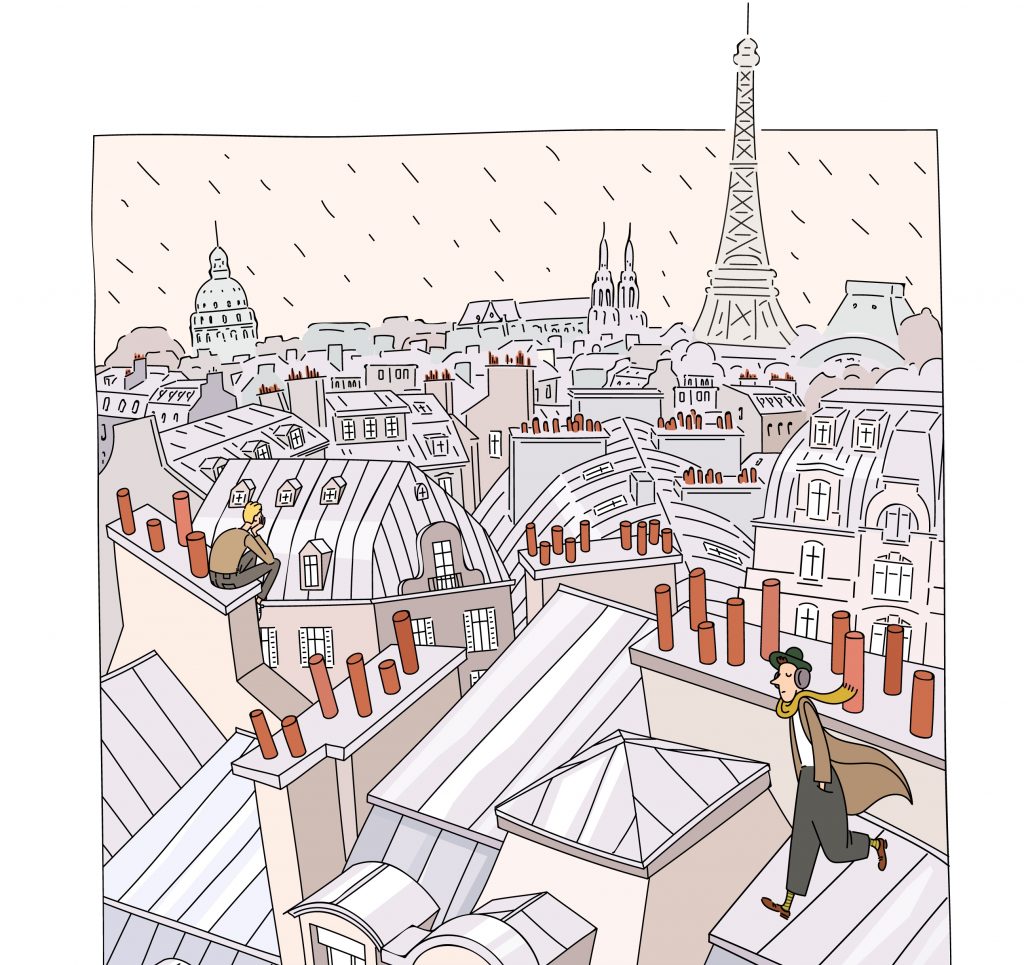
Konstantin Grishin's literary review of the book "The Age of Rain" (2017) - Время дождя in Russian - by Olga de Benoist
The mother tongue of Olga de Benoist is Russian. The author was born in Siberia, but least of all, her manner of writing could be characterized as gloomy or cruel. The only thing that unites her with Russian novels of Dostoevsky and Tolstoy is thoughtfulness and introspection. However, they do not dominate.
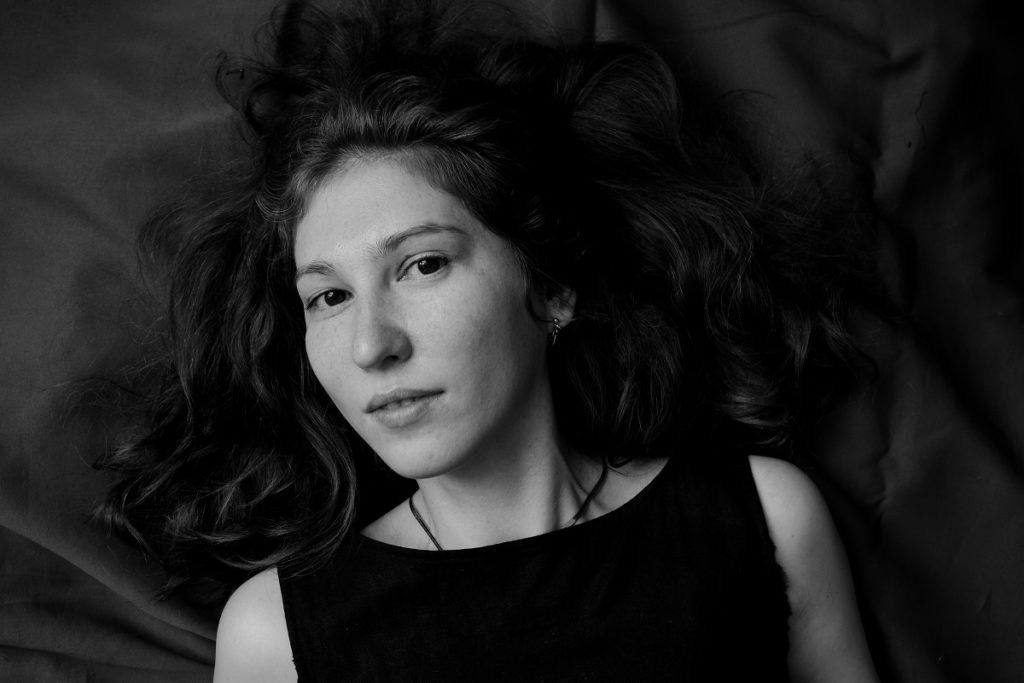
She set herself a task to portray “careless and shining Paris”, the Paris, seen through the eyes of young hippies and hipsters, the darlings of fortune. Her characters love life, they know how to enjoy it and still they are obsessed with an existential pathos. Every now and then they say, “Who are we? Why do we live? Whether do we do it right?” Maybe, it’s because they are very young, and they are immigrants: not completely integrated into France. And also because of it, in addition to the description of Paris, insatiable and hallucinatory canvases, we observe the characters from time to time discuss culturological themes in dialogues.
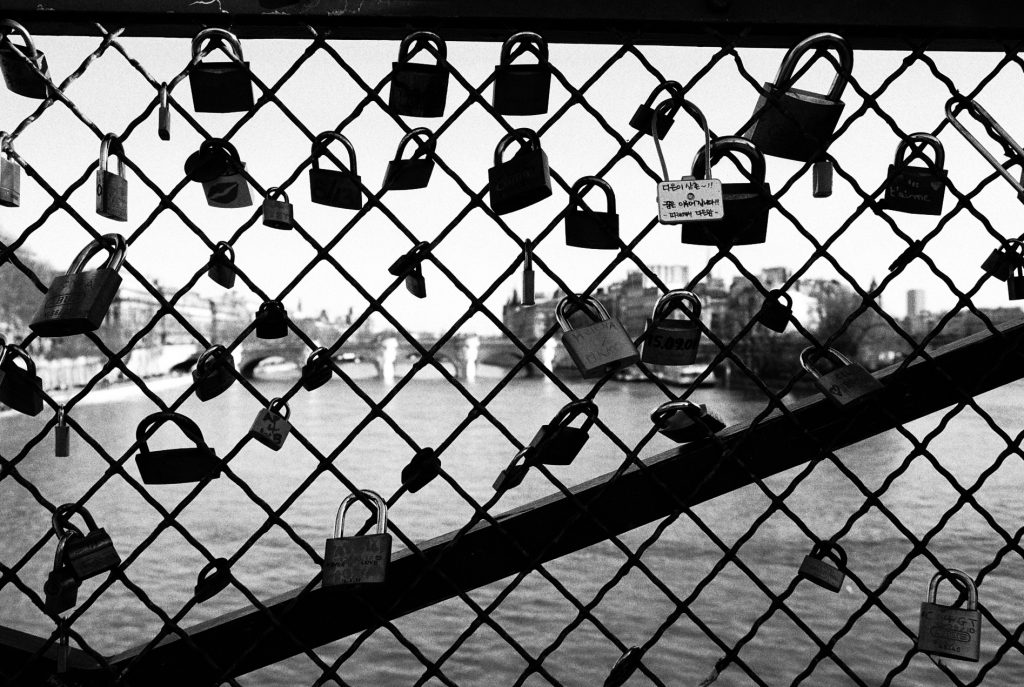
— Why have you made up your mind to move to Germany? — I like the Germans. Their attitude to life. Their life is so settled and subordinated to the system; surely, you’ll never be sunk. And why are you in France? — I like the French. Their carelessness, uncertainty, the lack of a system. You’ll never be bored with them.
The Age of Rain (2017) by Olga de Benoist
The action of the book consisting of a series of novellas, takes place in the streets of Paris, at cafes and bistros. People on its pages mostly are having fun and dreaming. We saw them not at work but as if they were at an endless siesta.
Cheerful and exciting melodies— jazz, blues, swing, rock, electro, metal and folk — were flowing through the streets as light streams, rushing rivers and bubbling waterfalls, captivating them completely. The crowd was buzzing, rattling, splashing in these tunes. Musicians of all ages, of all skin colours came here, to an eternal city to show their skills and artistry. All styles, countries, epochs were blending in one street pile. Ella Fitzgerald was making friends with fans of Guns N’ Roses and melodies of Chopin and Yann Tiersen, light like butterflies’ wings, — with passionate and hysterical groans of Violeta Parra.
The Age of Rain (2017) by Olga de Benoist
But a social context of their lives is described rather harshly. Olga de Benoist is a connoisseur of a light portrait drawn by several smears like caricatures in English pubs. In spite of her kindness and love, she can dissect a human and can dot the i’s and cross the t’s.
That year, in spring Polina and me, we were looking for the sense of life, each on her own manner…Polina was travelling around Europe, went camping or she managed to find some unimaginable work, for example, as a sailor on a tourist ship and even as a translator for boxing sessions. Her life seemed to everybody an adventure full of fun. Simultaneously, she was engaged in photography, rock climbing, making exhibitions and without much enthusiasm wrote articles to woman’s magazines. She started any new activity impulsively, with some curiosity; however, after a while, she lost any interest in it, and finally, she stopped it again coming back to work at the restaurant of Bektash. She stopped attending classes at the uni at all. She had to pass all the exams several times and she had to repeat the 3rd year.
The Age of Rain (2017) by Olga de Benoist
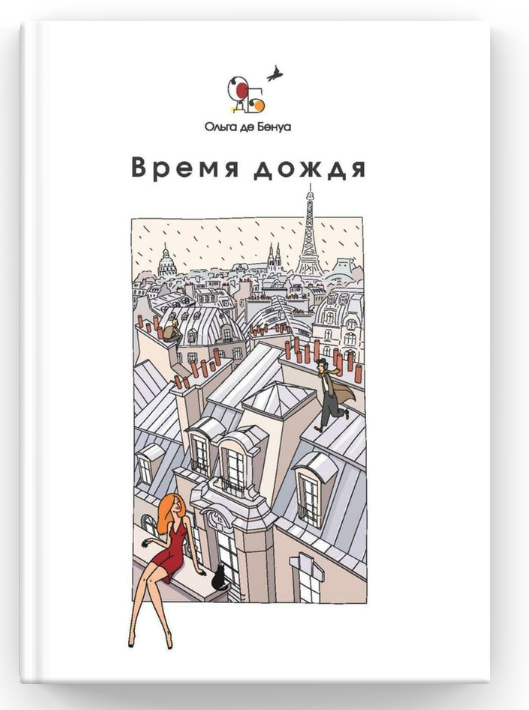
There is an unconscious irony in this extract. It is well-known that a stable expression like “a person is looking for the sense of life”, or “a person is trying to find out who he is” is more and more often acquiring a mocking sense and sounds just like “he is busy with some nonsense” and “he is a loser”. There is a great temptation to use all these phrases to her
characters. But they are only chrysalises, not butterflies. We can’t say anything definitely about them, they are only at the beginning of their lives; they are in their prologue but not in their epilogue. A teen looks ridiculous and awkward sometimes, but he has hopes in his life, not a dead end of a common man.
— A person can be whatever he wants. — May be, — said the Rain Man. — But not me. I know for sure, I will spend my life worthlessly, serving someone’s vanity and ambitions, which I have nothing to do with. Well, it is my destiny. But once I’ll be free and I’ll leave this world going along a starry road — towards the world I was always dreaming of.
The Age of Rain (2017) by Olga de Benoist
Those, who love A moveable feast by old chap Hem, who are acquainted with Orwell’s autobiographical books or were curious about Remark and Henry Miller, can find as already somehow familiar themes as well as something new. The author’s characters are immigrants and locals, people of different ages. Geniuses and dreamers, loafers and hard workers — and everybody shown on the background of the 21st century.
— You can say that I was born with a guitar in my hands. I have seen a lot in my life… Have travelled all over the world, playing in bars, little theatres and huge concert halls, in streets, in caves and in wedding parties… I played wherever was asked. I loved women and they loved me. However, what I really loved was to play the guitar. If once I get there, — he pointed to the sky, — and I will be questioned “Dadu, what have you done for people? What did you live for?” I will answer “I was born with a guitar and never left it out of my hands. The one thing I had, and the only one taken with me — is my guitar. It made people happy, warmed their hearts, and gave them hopes. I was playing the guitar like a god, oh, Lord, forgive me for such a cocky comparison. That is all what will remain after me. That is all what I brought to your Heaven”.
The Age of Rain (2017) by Olga de Benoist
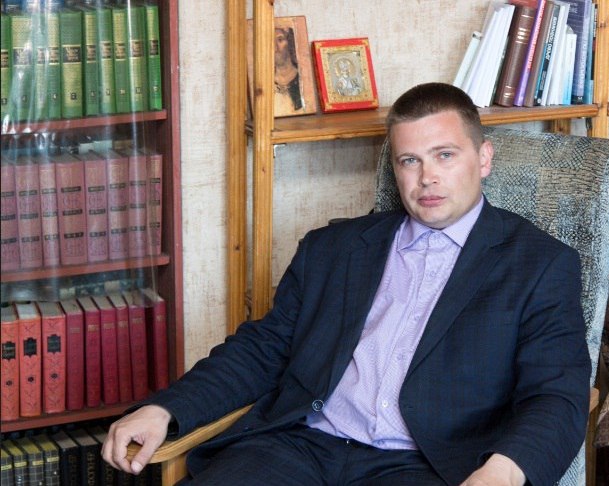
Konstantin Grishine is a Russian literary critic, journalist and writer, a member of the Union of Russian writers. Born in Siberia in 1986, he obtained a Master’s degree in Literary Critics at the State University of Altai. He has been working as a journalist and literary critic since 2010. His reviews and other work were published in a number of Russian magazines, newspapers and literary reviews (e.g. Altai, Likbez, Vstretscha, Kultura Altaiskogo Kraja, Altaiskaia missija, Barnaul literaturny, Ural, Litera Dnepr, Kreschatik and Znamia). He is the author of the books Krasnoarmeyskaya Avenue, For Internal Use Only and Sentimental Bouts-rimés.


